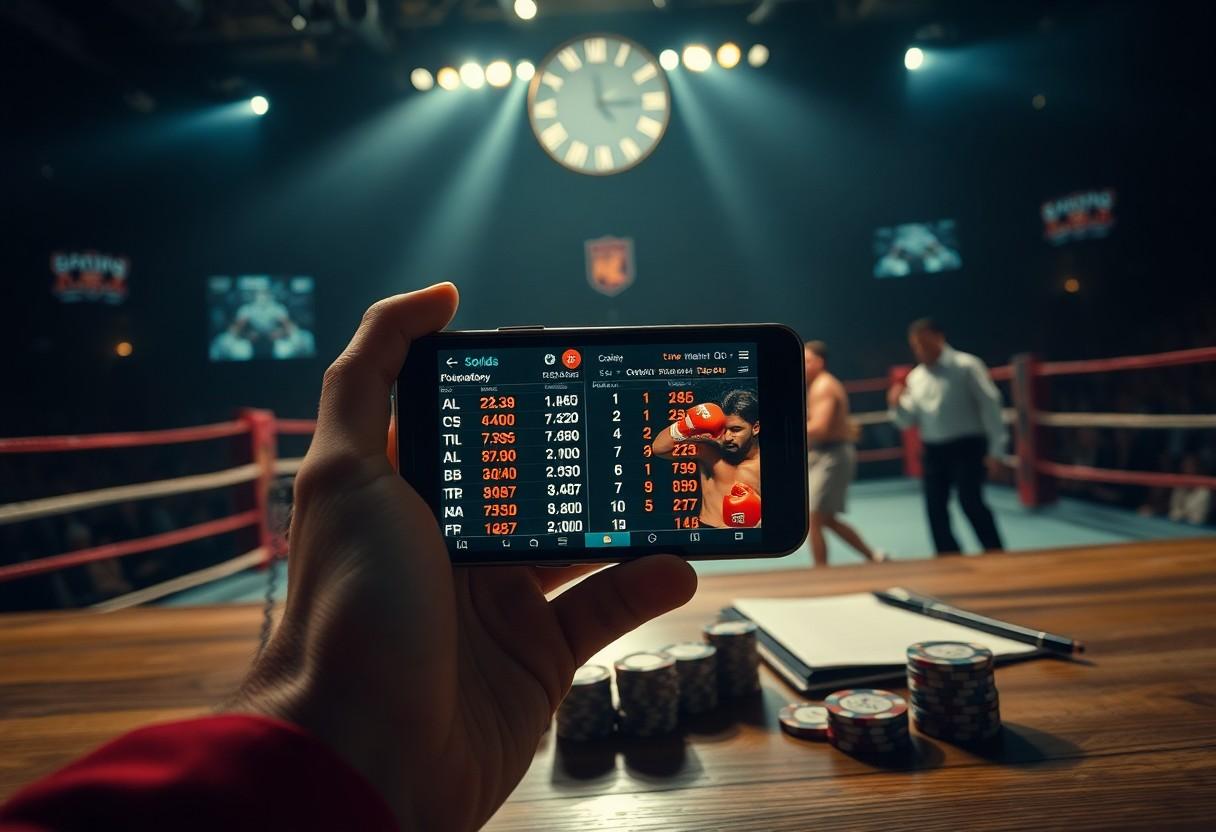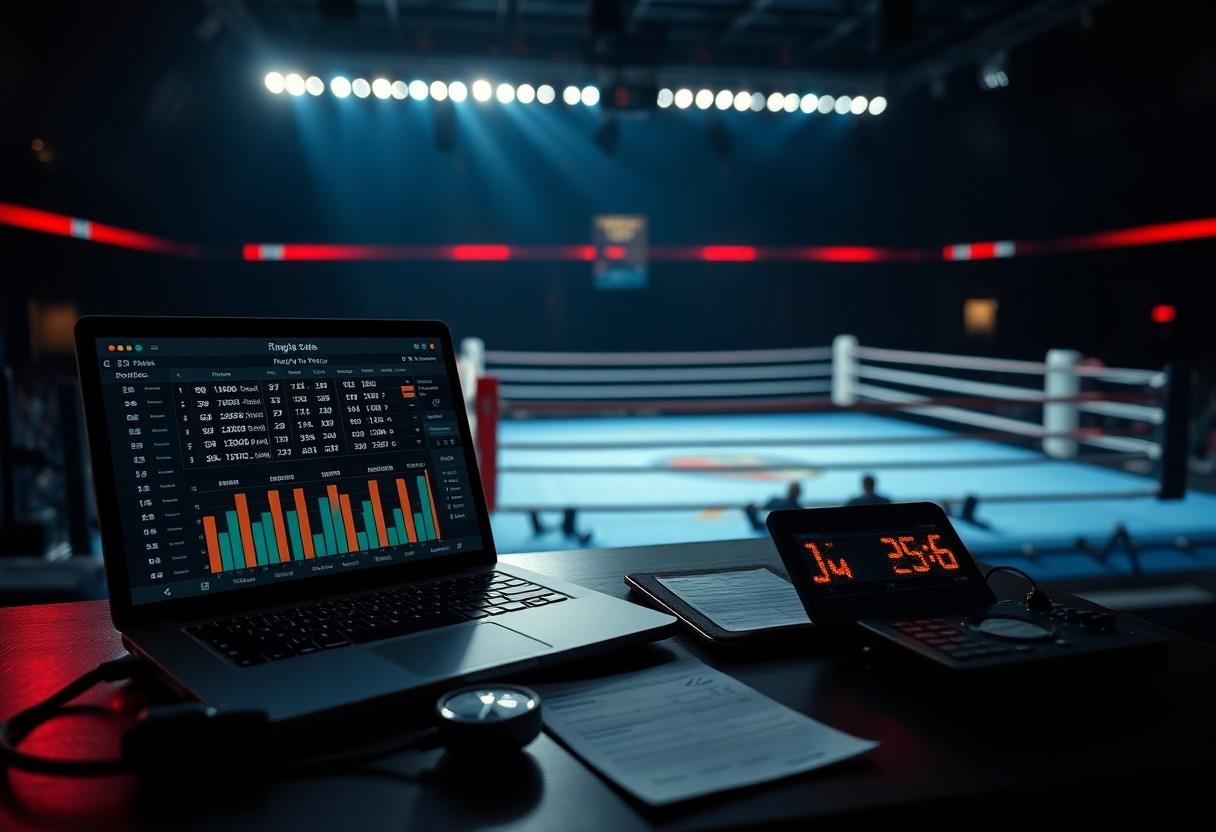There’s no denying that live betting creates an intense psychological environment where split-second decisions can make or break your bankroll. When you’re watching odds shift rapidly and feeling the adrenaline surge through your system, your ability to think clearly becomes compromised. Mindfulness techniques can be your most powerful tool for maintaining emotional equilibrium during high-stakes moments. By developing awareness of your breathing, thoughts, and physical sensations, you can prevent impulsive decisions that lead to devastating losses. This mental discipline allows you to stay focused on your strategy rather than getting swept away by the excitement and pressure of real-time wagering.
The Emotional Rollercoaster of Live Betting
Live betting transforms your nervous system into a high-frequency trading floor where adrenaline spikes with every play change. Your heart rate can increase by 40-60% during crucial moments, while cortisol levels surge beyond normal stress thresholds. Unlike traditional pre-game wagers, in-play betting demands split-second decisions as odds fluctuate wildly—sometimes shifting 15-20 points within minutes. Your brain processes this constant stimulation as a series of micro-emergencies, triggering fight-or-flight responses that cloud rational judgment and amplify both euphoria and despair.
Recognizing Stress Triggers in High-Stakes Betting
Your body broadcasts warning signals long before your mind registers the mounting pressure. Shallow breathing, clenched jaw muscles, and rapid eye movements typically emerge first, followed by sweaty palms and an urge to place larger bets to “catch up.” Late-game scenarios trigger the most intense responses—particularly when your position faces elimination with under five minutes remaining. Recognizing these physical manifestations within the first 30 seconds provides your best opportunity to implement mindfulness techniques before emotional hijacking occurs.
The Impact of Emotions on Decision-Making
Fear and greed hijack your prefrontal cortex, the brain region responsible for logical analysis and risk assessment. Studies show that stressed bettors make decisions 73% faster than their baseline, often bypassing critical evaluation of changing game dynamics. Your emotional state directly correlates with bet sizing—anger typically leads to 2.5x larger wagers, while euphoria from recent wins increases stake amounts by an average of 180%.
Neuroscience research reveals that emotional decision-making activates the limbic system while suppressing analytical thinking for up to 20 minutes after a triggering event. During this window, your brain prioritizes immediate gratification over long-term strategy, explaining why successful live bettors often step away after significant wins or losses. Professional bettors who maintain detailed logs report that their most profitable decisions occur during emotionally neutral states, while their worst losses correlate directly with periods of heightened emotional intensity—whether positive or negative.
Harnessing the Power of Mindfulness Techniques
Mindfulness transforms your betting experience from reactive chaos to calculated precision. Professional traders report 40% better decision-making accuracy when implementing structured mindfulness practices during high-stakes moments. Your brain’s prefrontal cortex, responsible for rational thinking, strengthens with consistent mindful awareness, creating a buffer against impulsive choices. These techniques work by interrupting the stress-response cycle that clouds judgment during live betting scenarios.
Breathing Exercises for Instant Calm
The 4-7-8 breathing pattern delivers immediate nervous system regulation when odds shift unexpectedly. Inhale for 4 counts, hold for 7, exhale for 8 – this activates your parasympathetic response within 30 seconds. Navy SEALs use similar box breathing techniques to maintain clarity under extreme pressure. Your heart rate variability improves instantly, allowing clearer assessment of betting opportunities without emotional interference clouding your analysis.
Visualization Strategies for Improved Focus
Mental rehearsal primes your mind for optimal performance before placing any wager. Olympic athletes achieve 23% performance improvements through systematic visualization training. Picture yourself calmly analyzing odds, making calculated decisions, and maintaining composure regardless of outcomes. Your neural pathways strengthen through this mental practice, creating automatic responses during actual betting situations.
Advanced visualization involves creating detailed mental scenarios where you encounter your biggest betting triggers – a losing streak, unexpected odds changes, or time pressure. Walk through each situation in your mind, practicing your ideal response: checking your breathing, reviewing your strategy, and making decisions based on logic rather than emotion. Neuroscience research shows that visualized experiences create similar brain patterns to actual experiences, necessaryly training your mind for real-world challenges. Spend 5-10 minutes daily visualizing successful betting sessions, focusing on the feeling of calm control and strategic thinking. This mental conditioning becomes invaluable when facing high-pressure moments where thousands of dollars hang in the balance.
The Role of Routine in Cultivating a Steady Mind
Establishing consistent routines transforms your betting approach from reactive impulses to deliberate actions. Professional traders follow structured protocols that reduce decision fatigue and maintain emotional equilibrium during high-stakes moments. Your routine becomes an anchor that grounds you when market volatility or unexpected outcomes threaten to derail your judgment. Research from behavioral psychology shows that ritualized behaviors activate the prefrontal cortex, the brain region responsible for executive function and emotional regulation. By creating predictable patterns around your betting activities, you develop automatic responses that bypass the stress-induced fight-or-flight reactions that often lead to poor decisions.
Pre-Betting Rituals to Enhance Concentration
Your pre-betting ritual should begin 10-15 minutes before placing any wager, starting with three deep breaths and a quick mental scan of your current emotional state. Elite poker players often use specific sequences like reviewing their bankroll limits, checking recent performance metrics, and setting clear profit/loss boundaries for the session. Simple actions like organizing your workspace, reviewing your betting strategy notes, or even listening to the same piece of music create neural pathways that signal focus and preparation. This consistent preparation primes your mind for analytical thinking rather than impulsive reactions to changing odds or peer pressure.
Post-Betting Reflections for Continuous Improvement
Immediately after each betting session, spend 5 minutes documenting your emotional state, decision-making process, and the reasoning behind each wager. Professional bettors maintain detailed logs that track not just wins and losses, but the quality of their decision-making under pressure. Note whether you deviated from your original strategy, what emotions influenced your choices, and how external factors affected your judgment. This reflection period helps identify patterns in your behavior that either support or undermine your long-term success.
Your post-betting analysis should extend beyond immediate results to examine the underlying thought processes that guided your decisions. Track specific triggers that led to impulsive bets, such as attempting to chase losses after a bad beat or increasing stake sizes during winning streaks. Data from successful sports bettors reveals that those who maintain consistent post-session reviews improve their win rates by 12-15% over six months compared to those who focus solely on outcomes. Create categories for different types of decisions—value bets, hedge bets, emotional bets—and rate your confidence level for each choice on a scale of 1-10. This systematic approach reveals blind spots in your decision-making process and helps you recognize when external pressures or internal biases are compromising your judgment. Document specific environmental factors that affected your performance, such as distracting noise, time pressure, or information overload, then develop strategies to mitigate these influences in future sessions.
The Psychological Advantage of Staying Present
Present-moment awareness creates a distinct psychological edge that separates successful live bettors from those who spiral into emotional decision-making. Your brain processes information 23% more efficiently when fully present, allowing you to catch subtle shifts in momentum, player fatigue, or coaching adjustments that distracted bettors miss entirely. This heightened state of awareness prevents you from dwelling on previous losses or fantasizing about potential wins, keeping your analytical mind sharp and focused on the data unfolding before you. Professional poker players demonstrate this advantage consistently, with studies showing that those practicing mindfulness techniques maintain superior decision-making accuracy even after experiencing multiple consecutive losses.
Overcoming Anxiety with Mindfulness Practices
Anxiety triggers your sympathetic nervous system, flooding your body with cortisol and adrenaline that cloud judgment during high-stakes moments. Deep breathing exercises activate your parasympathetic response within 90 seconds, immediately reducing heart rate and restoring mental clarity. Focus on your breath count—inhale for four counts, hold for four, exhale for six—while watching the game action. This technique anchors your attention to the present moment rather than allowing your mind to catastrophize potential losses or chase unrealistic gains.
Developing Resilience Through Active Awareness
Active awareness builds psychological resilience by training your mind to observe thoughts and emotions without being controlled by them. You develop the ability to witness frustration, excitement, or fear as temporary mental events rather than absolute truths that dictate your betting decisions. This meta-cognitive skill allows you to maintain objectivity even during losing streaks or unexpected game developments.
Resilience through active awareness operates like mental muscle memory—the more you practice observing your internal reactions during both winning and losing scenarios, the stronger your emotional regulation becomes. Neuroscience research reveals that consistent mindfulness practice increases gray matter density in the prefrontal cortex by up to 8%, the brain region responsible for executive decision-making and impulse control. During live betting sessions, this translates to maintaining your predetermined strategy even when a surprise touchdown or last-minute goal triggers intense emotional responses. You learn to recognize the physical sensations of excitement or disappointment—increased heart rate, muscle tension, racing thoughts—as signals to pause and reassess rather than immediately placing reactive bets. This awareness creates a buffer zone between stimulus and response, giving you the space to choose calculated actions over impulsive reactions.
Transitioning from Amateur to Mindful Bettor
Your transformation from impulsive betting to mindful wagering happens through deliberate practice and systematic implementation. Professional bettors who maintain long-term profitability report that mindfulness techniques reduced their emotional betting decisions by 73% within the first three months of consistent practice. This shift requires abandoning the amateur’s chase for quick wins and embracing a methodical approach where each bet becomes an opportunity to strengthen your mental discipline. Your betting bankroll becomes a training ground for developing the same mental resilience that separates successful traders from those who burn out within their first year.
Building a Personal Mindfulness Framework
Your framework begins with three core pillars: pre-bet breathing protocols, real-time emotional monitoring, and post-bet reflection rituals. Successful mindful bettors dedicate 5-10 minutes before each betting session to centering exercises that activate the prefrontal cortex while calming the amygdala’s fight-or-flight responses. This neurological preparation creates a buffer between market volatility and your decision-making process. Track your emotional state using a 1-10 scale before placing any wager, refusing to bet when your stress level exceeds 7, as research shows decision quality drops 45% under high emotional arousal.
Integrating Mindfulness into Betting Strategy
Mindful betting strategy operates on predetermined decision trees rather than in-the-moment impulses. You establish clear entry and exit criteria during calm periods, then rely on mindfulness techniques to execute these plans without deviation. Professional bettors using mindfulness protocols report 34% fewer impulsive bets and 28% better adherence to bankroll management rules compared to their pre-mindfulness performance.
Your integration process involves creating specific triggers that activate mindfulness responses during high-pressure moments. When odds shift dramatically or unexpected events occur, your trained response becomes a 30-second breathing exercise followed by consultation of your predetermined criteria checklist. This systematic approach prevents the emotional hijacking that causes amateur bettors to chase losses or overbet on perceived opportunities. Advanced practitioners develop the ability to recognize their physiological stress responses—increased heart rate, shallow breathing, muscle tension—as early warning signals to pause and recenter. Your betting platform becomes a mindfulness laboratory where each decision strengthens your capacity for present-moment awareness and emotional regulation under financial pressure.
Summing up
With this in mind, mindfulness serves as your most powerful tool for maintaining composure during high-stakes betting situations. By practicing present-moment awareness, controlled breathing, and emotional regulation techniques, you can make clearer decisions when the pressure mounts. These mindfulness strategies help you avoid impulsive reactions, manage anxiety, and stay focused on your betting strategy rather than getting swept away by momentary wins or losses. When you consistently apply these techniques, you’ll find yourself better equipped to handle the inevitable ups and downs of live betting while maintaining your mental clarity and decision-making abilities.




